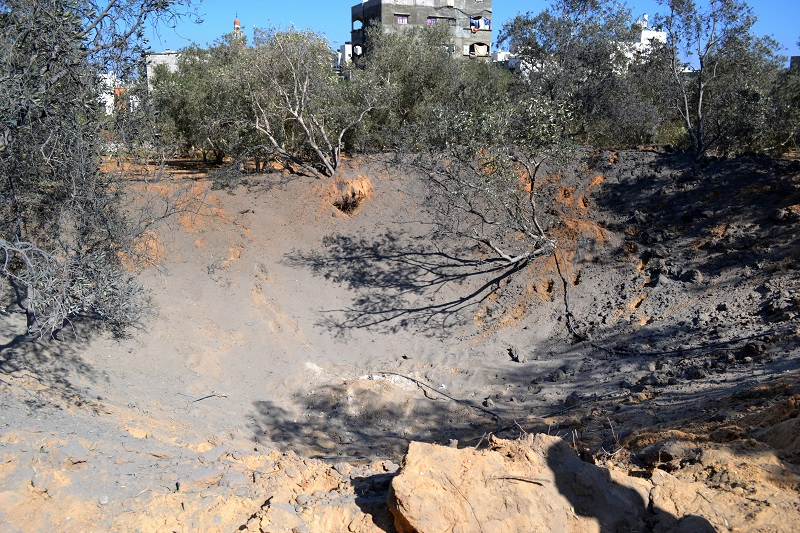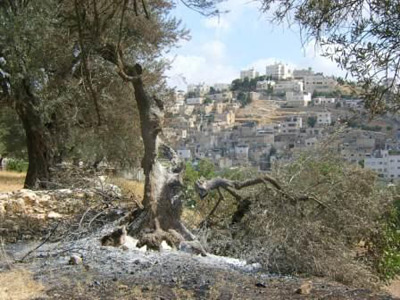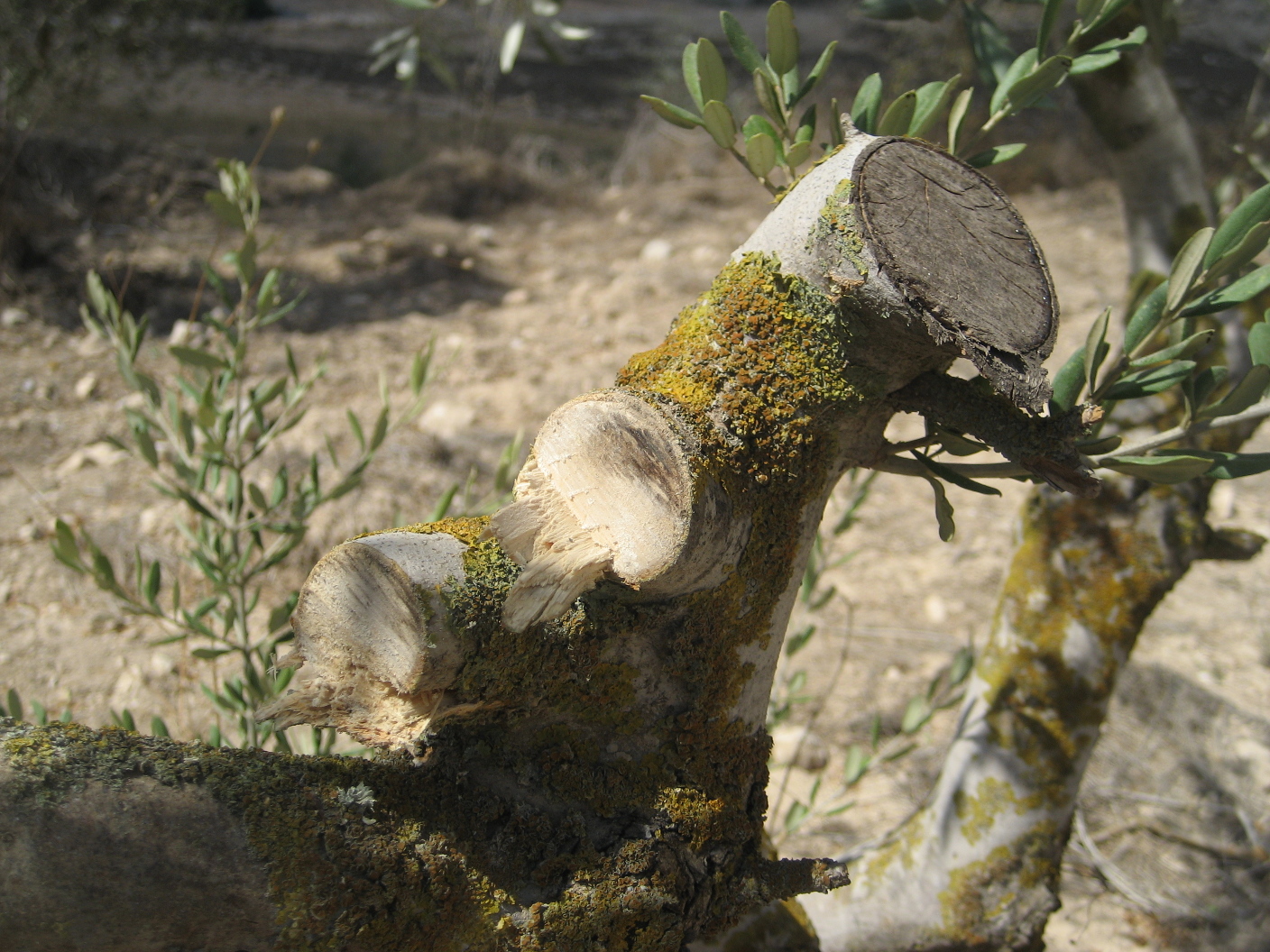Tag: Olive Trees
-
Illegal settlers prevent family from leaving their home and attack internationals whilst Israeli soldiers watch
Yesterday, 11th October at 7 pm, a group of settlers of the illegal settlement of Tel Rumeida surrounded the entrance of the Azzeh family property and built a wire fence to block the exit. Young settlers fixed the fence in place using plastic cable ties. Hashem Azzeh and his family were about to leave the house…
-
Settlers steal olives from 110+ trees in Abu Huwar
7th of October | International Solidarity Movement, Team Nablus | Deir Sharaf, Occupied Palestine On the 5th of October, local farmers discovered that the olives from more than one hundred trees had been stolen, and that another ten trees had been damaged or destroyed. Abu Huwar farm, belonging to Yasser Fuqaha, Sidqi Fukaha, Mustafa Fuqaha…



